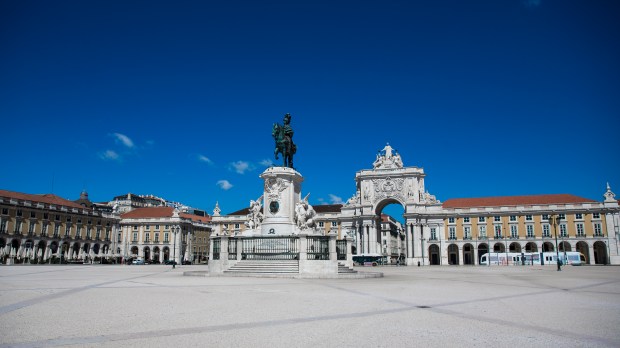Lenten Campaign 2025
This content is free of charge, as are all our articles.
Support us with a donation that is tax-deductible and enable us to continue to reach millions of readers.
Wednesday 3 August 2022
1. One year before WYD, the organization underlines the “great capacity for hospitality” of the Portuguese
2. Canonizations of child martyrs by the Serbian Orthodox Church are stirring up tensions with the Croatian Catholic Church
3. In Austria the first mass wine dispenser is born
One year before WYD, the organization underlines the “great capacity for hospitality” of the Portuguese
With only one year to go to the World Youth Day in Lisbon, scheduled to take place from 1 to 6 August 2023, Duarte Ricciardi, Executive Secretary of the Local Organizing Committee told Portuguese news agency Ecclesia, that the “Portuguese people’s great capacity for hospitality will be an important hallmark of the WYD.” Ricciardi explained that the preparation for the event now “enters a more accelerated phase,” which “feels the enthusiasm of the rest of the world.” “We want to propose an experience of encounter and that each person lives it in their own way, […] this week is going to be very rich,” he said, adding that he hopes each participant can “grow and realize their role in the world.” Ricciardi said the registrations to attend the WYD should open after the summer and underlined the importance of digital means to reach young people and accompany them in this time.
Ecclesia, Portuguese.
Canonizations of child martyrs by the Serbian Orthodox Church are stirring up tensions with the Croatian Catholic Church
Seven Croatian bishops, including Cardinal Josip Bozanic, Archbishop of Zagreb, have sent a long letter of protest to the Patriarch Porfirije of the Serbian Orthodox Church. The reason for their discontent: the canonization by the Serbian synod of the “martyred holy children of Jastrebarsko and Sisak.” The Serbian Orthodox Church believes several members of the Catholic Church, including some nuns, are responsible for the death of the children, apparently victims of mistreatment because they were Orthodox. The Croatian prelates strongly condemn this version of the historical event and list in their letter the many inaccuracies in the documentation used for the canonization, while offering the Serbs many sources to correct their interpretation. “We remain in disbelief and sadness because we have the impression that, with regard to this matter, the Holy Synod of Bishops of the Serbian Orthodox Church has obviously accepted rhetoric and communist propaganda, full of untruths and manipulations,” the signatories lament. They warn of the very negative effects that the continuation of such canonizations could have on relations between Croatian Catholics and Serbian Orthodox.
Informativna Catolicka Agencija, English
In Austria the first mass wine dispenser is born
People visiting the beautiful baroque church of Frauenkirche in Austria will see a strange machine with a touch screen, credit card reader and taps. For one euro, they can now buy a 6.25 cl portion of Mass wine “cooled to six degrees”, reports the German Catholic portal Katholisch.de. The first machine of its kind “in the world,” says its inventor, Thomas Lackner, a Franciscan priest with a passion for technology. His goal is to intrigue people into entering his church. “It can be the first step in overcoming the threshold of faith,” he explains. The wines all come from local winemakers and meet the requirements of Mass wine: no additives and approved by the diocese. And, “of course,” they are not consecrated, Father Lackner specifies.
Katholisch.de, German


